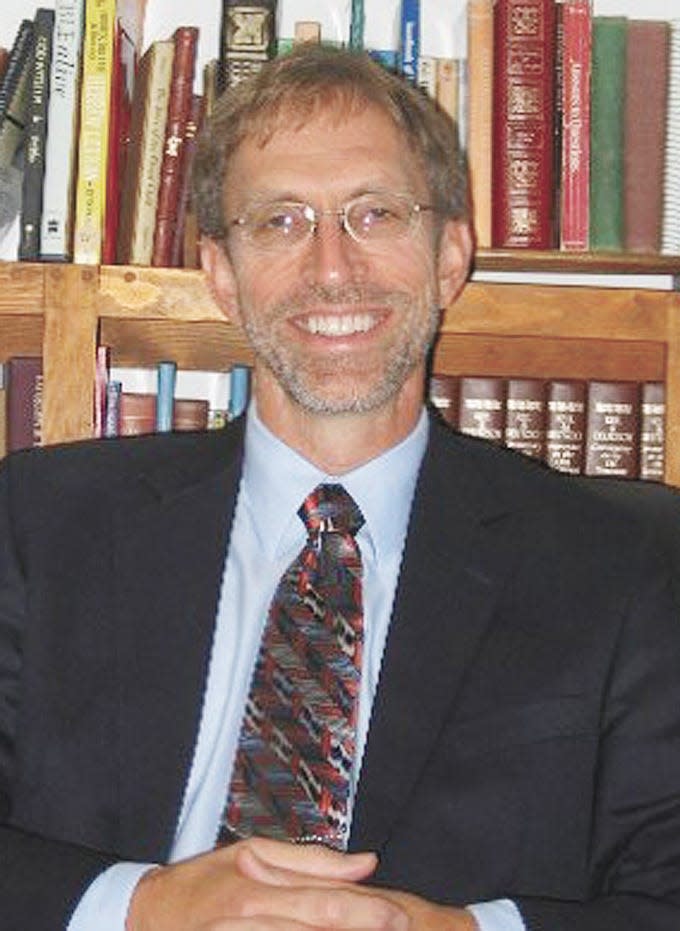Shayne Looper: What’s the big deal about Christmas?
Americans love Christmas. They plan for it, spend money on it — this year the average consumer is expected to spend over $1,500 — and gather with family and friends to celebrate it. But few Americans understand why Christmas is such a big deal.
To understand what Christmas means and why it is important, we need to go back, way back. We need to go beyond Bethlehem and its mangered baby and travel all the way to Eden, for it was there that the Creator first became Immanuel. According to Genesis, God was with the first humans in a manner they could perceive and in ways that caused them to flourish.

God made the earth to be a place that would beautifully and remarkably sustain biological life. It was perfect. And on the earth, he made a place, the Garden of Eden, that was supremely suited to a particular kind of biological life: the human. He placed two humans, a man and a woman, in that ideal environment.
Biologically, he made the humans so that they could mate and multiply and fill the earth. Spiritually, he designed them so that they and all their descendants would resemble the Creator himself. He gave them characteristics that mirrored his own (appropriate to their biological form, of course) and bestowed on them the responsibility of serving as his representatives on earth.
God gave them dominion over everything on earth. His plan was to set up living images of himself — human beings — all over the planet. They were to lovingly care for the planet and for all its creatures on his behalf. Think of the earth and the universe as a kingdom, the Creator as king, and the humans as the king’s chosen regents.
As time went on the man and the woman, known to us as Adam and Eve, chose to go their own way, and their way was a long and disastrous detour. Instead of serving as the King’s regents, they chose their own path. They did not want to rule under God, they wanted to rule beside him.
They believed that they would be better off — happier, more fulfilled, more who they were meant to be — if they were autonomous. When Adam and Eve ate the forbidden fruit — the Bible does not say it was an apple — they were not acting like naughty children but like rebellious conspirators and, at least to some degree, they knew it. What happened in the garden was not a slip but a jump that turned into a fall.
God intended the humans to rule his world, but they were now at its mercy. Under God’s leadership, they were being groomed to rule, but when they stopped being subject to God, they became subject to fear and ruled by desire. On the very day of their revolt, there began a struggle between man and God, man and earth, and man and man. They were expelled from the garden, and the world began to fall apart. So did the humans. And, to all appearances, so did God’s plan.
The man and woman were expelled from the safety of the garden into the world they had defaced. Immanuel — the God with them of the Garden — was now the God away from them. And the separation they had introduced into that relationship also came between them. A new reality had been introduced into their world: distance. They were far from God, increasingly far from each other, and even far from themselves — the selves they were intended to be.
The humans rejected their Creator, and that is our shame. But the Creator did not reject the humans, and that is our hope. God promised to send Immanuel, the one who would bring people back to God so that the Creator and the created could be together again.
The story of the baby laid in a manger is part of this larger narrative: the story of the God who would rather die than live without us — who did die rather than live without us. For the story does not end in Bethlehem’s manger but continues to Calvary’s cross. And it is not over yet.
— Shayne Looper is a writer and speaker based in Coldwater, Michigan. Contact him at salooper57@gmail.com.
This article originally appeared on The Holland Sentinel: Shayne Looper: What’s the big deal about Christmas?

